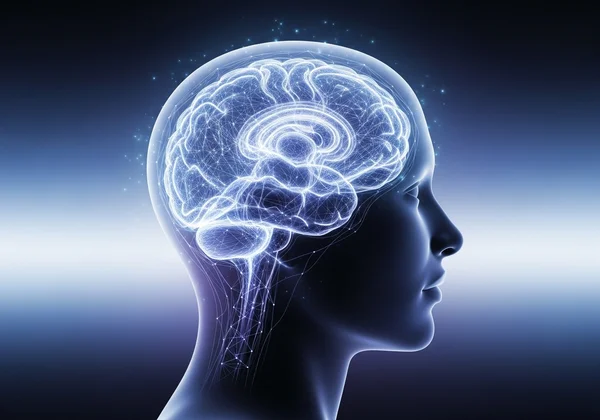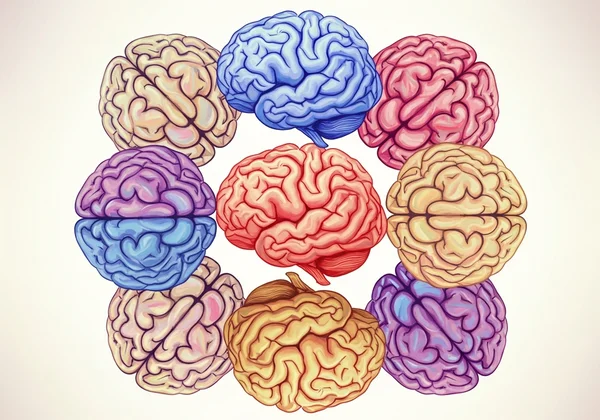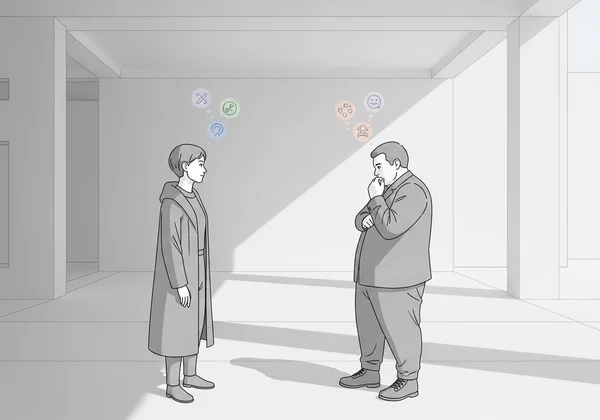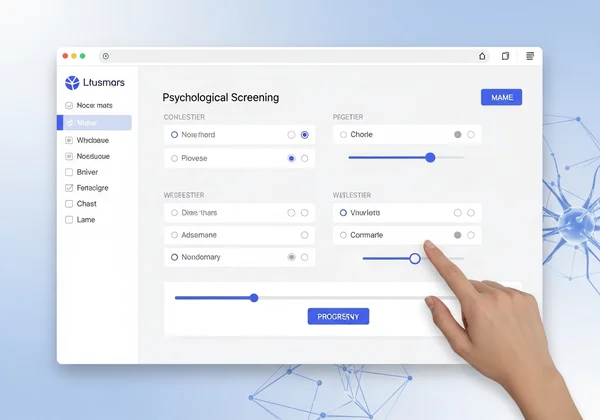Aspergers Test: A Comprehensive Neurodiversity Guide
July 13, 2025 | By Jasper Finch
Are you exploring the intricacies of your unique mind, or perhaps wondering if a loved one's distinct traits align with something you've heard about Asperger's Syndrome? Many people embark on a journey of self-discovery, asking, "Can I test myself for Asperger's?" This guide aims to illuminate the concept of Asperger's, fostering a compassionate and empowering understanding of what it means to be a neurodivergent individual. It’s a step towards deeper self-awareness, recognizing unique patterns, and finding ways to thrive. Our platform offers a confidential and insightful starting point for this exploration through its scientific online screening tool.

What is Asperger's Syndrome? Defining a Neurotype
To truly understand Asperger's, it helps to see it as a neurotype—a natural way the human brain can be wired, affecting how someone perceives the world, interacts socially, and processes information. It's not a disease to be cured, but a distinct way of being.
The Historical Journey: From Asperger's to the Autism Spectrum
Historically, Asperger's Syndrome was recognized as a distinct diagnosis, named after Austrian pediatrician Hans Asperger, who observed patterns of behavior in children that differed from typical development. These children displayed social communication challenges, highly focused interests, and repetitive behaviors, yet often had strong verbal skills and average to above-average intelligence.
However, with the publication of the Diagnostic and Statistical Manual of Mental Disorders (DSM-5) in 2013, Asperger's Syndrome was integrated into the broader Autism Spectrum Disorder (ASD). This shift reflects a more comprehensive scientific understanding that autistic traits exist along a continuum. Instead of separate categories, ASD now encompasses a wide range of presentations, acknowledging the unique profile of each individual. While the official diagnostic label "Asperger's Syndrome" is no longer used clinically, many individuals still identify with it as a descriptor of their experience, particularly those diagnosed before 2013 or those who feel it accurately represents their specific qualities within the broader spectrum.
Core Characteristics and Common Traits of Asperger's
Individuals with what was once called Asperger's typically exhibit a combination of core qualities that fall into two main categories:
- Social Communication and Interaction Differences: This can involve difficulties with non-verbal communication (like understanding facial expressions or body language), challenges with reciprocal conversation (back-and-forth banter), and a preference for direct, literal communication. They might struggle with initiating or maintaining friendships in conventional ways.
- Restricted, Repetitive Patterns of Behavior, Interests, or Activities: This includes intense, highly focused special interests (often leading to extensive knowledge in specific areas), adherence to routines, and repetitive movements (often called "stimming," which can be a self-regulating behavior). Sensory sensitivities are also common, where individuals might be over- or under-responsive to sounds, lights, textures, or smells.
It’s important to remember that these attributes manifest uniquely in each person. The intensity and combination of traits vary widely, making the autism spectrum truly diverse.
Embracing Neurodiversity: A Modern Perspective
The idea of neurodiversity celebrates neurological differences, like those in Autism Spectrum Disorder, as natural variations in the human brain, much like differences in race or gender. This perspective promotes acceptance, celebrates unique cognitive styles, and advocates for societal inclusion.

The Autism Spectrum: A Broad Range of Experiences
The autism spectrum is incredibly diverse. It’s not a linear scale from "mild" to "severe," but rather a complex landscape where each individual has a unique combination of strengths and challenges. Some individuals may have significant support needs, while others might navigate daily life with less visible support, often referred to as "high-functioning" autism or, historically, Asperger's. This broad range highlights why personal insight is so personal and why generalized assumptions can be misleading. Tools like an [online Asperger's test] can help individuals gain initial insights into where they might fit on this wide spectrum.
Shifting the Narrative: Strengths and Unique Perspectives
Moving beyond a deficit-based model, the neurodiversity movement emphasizes the remarkable strengths and unique perspectives often associated with this neurotype. Many individuals on the autism spectrum exhibit:
- Exceptional focus and attention to detail: Leading to mastery in specific fields.
- Strong logical and analytical thinking: Excelling in STEM fields, problem-solving.
- Reliability and adherence to rules: Making them dependable in structured environments.
- Deep loyalty and honesty: Valued qualities in personal and professional relationships.
- Unique problem-solving abilities: Approaching challenges from novel angles.
- Intense passion for special interests: Fostering deep knowledge and expertise.
Embracing these positive attributes empowers individuals to leverage their inherent talents, shifting the narrative from "disorder" to "difference." Discovering these unique strengths can be a profound part of your journey, and an aspergers test for adults can be a great starting point for self-discovery.
Recognizing Asperger's Traits in Daily Life
Identifying Asperger's qualities often involves observing recurring patterns in everyday interactions and behaviors. While a formal diagnosis requires a comprehensive evaluation by a professional, understanding these common manifestations can provide valuable personal insights.
Social Communication and Interaction Patterns
Individuals with Asperger's tendencies might:
- Struggle with unspoken social rules: Like taking turns in conversation or understanding sarcasm and irony.
- Prefer factual, direct communication: Finding ambiguity or euphemisms confusing.
- Have difficulty making eye contact: Not out of disrespect, but often due to discomfort or difficulty processing information simultaneously.
- Engage in monologues about special interests: Sometimes dominating conversations without realizing.
- Find small talk challenging: Preferring deep, meaningful discussions over casual exchanges.
- Experience social fatigue: Feeling drained after social interactions due to the effort of navigating complex social cues.
These social communication patterns can lead to misunderstandings, but also highlight a genuine and often unfiltered approach to communication.

Repetitive Behaviors, Special Interests, and Sensory Sensitivities
Beyond social aspects, other common attributes of Asperger's include:
- Adherence to routines: A strong preference for predictability and discomfort with unexpected changes. Routines provide comfort and a sense of control.
- Special interests: Highly focused and often intense passions for specific topics, ranging from train schedules to quantum physics. These interests can be a source of great joy, expertise, and comfort.
- Repetitive behaviors (stimming): Self-stimulatory behaviors like hand flapping, rocking, or pacing. These can help manage sensory input, regulate emotions, or express excitement.
- Sensory sensitivities: Over- or under-responsiveness to sensory stimuli. Loud noises, bright lights, certain textures, or strong smells can be overwhelming, while others might seek specific sensory input.
Recognizing these features can provide clarity and validation for individuals who have long felt "different" without understanding why. If these traits resonate with you, a free aspergers test online can be a helpful first step in confirming your suspicions and beginning your journey of self-discovery.
Your Journey to Self-Discovery: Exploring Asperger's
Understanding Asperger's Syndrome is a crucial step on a path towards greater personal insight. It's about recognizing unique traits, celebrating strengths, and navigating challenges with informed strategies. Knowing more about your neurotype can lead to greater self-acceptance, improved communication, and more effective ways of managing daily life. It can empower you to advocate for your needs and build a life that truly embraces your authentic self.
If you're seeking a confidential and scientifically-backed starting point for this exploration, our site offers a comprehensive [online screening tool]. Based on recognized clinical scales like AQ (Autism Spectrum Quotient) and RAADSR (Ritvo Autism Asperger Diagnostic Scale-Revised), our aspergers test provides an instant score and the option for a detailed, AI-generated personalized analysis report. This report moves beyond a simple score, offering deep personal insights into your unique traits, strengths, and areas where you might benefit from specific strategies. It's a valuable resource designed to help you understand your brain's distinct wiring and can be a powerful first step towards self-discovery. [Discover your results] today and take control of your self-understanding journey.

Frequently Asked Questions About Asperger's
Can I test myself for Asperger's?
Yes, you can take a self-screening aspergers test online, such as the one we provide. These tools, based on established scales like AQ and RAADSR, provide valuable preliminary insights and an instant score. They are excellent for gaining personal insight and preparing for discussions with a professional, but are not formal diagnoses. Remember, an [online aspergers test] is a screening tool, not a medical diagnostic tool. Its purpose is to help you explore your traits and decide if further professional evaluation is something you want to pursue.
What are the symptoms of undiagnosed Asperger's in adults?
Many adults with Asperger's who are undiagnosed might experience persistent social awkwardness, difficulty forming or maintaining friendships, a strong preference for routines, intense special interests, and heightened sensory sensitivities. These traits can lead to challenges in work or relationships, often resulting in feelings of being 'different' or misunderstood. Other tendencies might include difficulty with emotional regulation, literal interpretation of language, and a tendency towards anxiety or depression due to a lifetime of navigating a neurotypical world without understanding their own neurotype. An adult aspergers test can help highlight these patterns.
How can you tell the difference between Asperger's and autism?
Historically, Asperger's was distinct from autism by the absence of significant language delays or intellectual disability, and often involved a later age of diagnosis. However, the DSM-5 now classifies both under Autism Spectrum Disorder (ASD). This means they are seen as different presentations along the same continuum. All individuals on the autism spectrum share core patterns related to social communication and restricted/repetitive behaviors, but the intensity and manifestation of these attributes vary widely. The term "Asperger's" is still used by many as a self-identifier to denote their particular experience within the broader autism spectrum, often highlighting their cognitive strengths and intact language development.